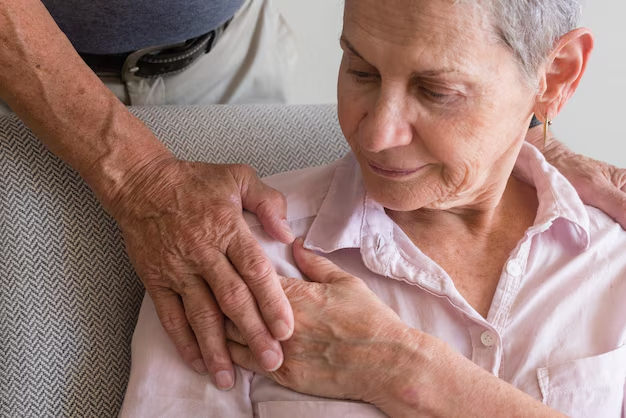Understanding Longevity With Parkinson's Disease: The Journey Ahead
Parkinson's disease, a progressive neurological disorder, is known for its impact on movement, affecting millions worldwide. With numerous advancements in medical science, many wonder how long individuals can live with Parkinson’s. The question invites a journey through understanding not just life expectancy, but the quality, lifestyle, and significant factors that influence the well-being of those affected.
Decoding Parkinson's Disease
Parkinson's disease is characterized by the degeneration of neurons in the brain, particularly those that produce dopamine, a chemical responsible for transmitting signals for smooth and coordinated movements. This results in the hallmark symptoms such as tremors, stiffness, slowness of movement, and balance problems. But Parkinson’s is multifaceted, affecting each person uniquely.
Typical Life Expectancy
Life expectancy for people with Parkinson's has been a topic of study and discussion for years. Generally, advanced treatments and vigilance with health management mean individuals often live near-normal life spans. However, this depends on various factors like the age of onset, how quickly the disease progresses, and other health conditions that may exist alongside Parkinson’s.
Statistics suggest that with optimal care, people with Parkinson's disease can live an average of 20 years or more post-diagnosis. Continual advancements in treatment approaches are promising, potentially improving these outcomes further.
Factors Influencing Longevity
Age of Onset
Age when Parkinson’s symptoms first appear plays a significant role in determining life expectancy. Typically, an older age of onset is associated with a somewhat reduced lifespan, largely due to the presence of other age-related health issues. Conversely, those diagnosed earlier might face a prolonged progression of the disease.
Disease Progression
Progression speed differs widely among individuals. Rapid deterioration in symptoms can lead to complications that might shorten life expectancy. A more gradual progression generally translates to better management opportunities and, consequently, a longer, higher quality of life.
Comorbidities
Comorbid health conditions like cardiovascular diseases, diabetes, and respiratory issues can impact longevity. Managing these conditions proactively alongside Parkinson's is crucial in preserving life expectancy and quality of life.
Lifestyle and Support
Lifestyle choices and the level of support from family, friends, and healthcare providers significantly affect outcomes. Adhering to a balanced diet, maintaining physical activity, and accessing mental health resources are important for longevity. Emotional support and a robust healthcare network enable better management and adaptation to disease progression.
The Role of Treatment
Although there is no cure for Parkinson's, various treatment strategies work to manage symptoms and improve quality of life. These include:
Medication: Dopaminergic medications help replenish or mimic dopamine, easing motor symptoms. Regular adjustments by medical professionals ensure optimal effectiveness.
Surgery: Procedures like deep brain stimulation can reduce symptoms when medications become less effective. It involves implanting a device in the brain to stimulate specific areas that control movement.
Therapies: Physical, occupational, and speech therapies address particular needs, helping maintain movement, daily function, and communication abilities.
Lifestyle Interventions: Exercise is pivotal, not just for physical well-being but also for cognitive and emotional health. Evidence suggests that regular physical activity can slow the progression of symptoms.
Enhancing Quality of Life
Nutrition and Diet
A balanced diet, rich in fiber, antioxidants, and omega-3 fatty acids, supports overall health. Attention to hydration and appropriate meal timing with medications prevents side effects and maximizes their effectiveness.
Exercise
Regular physical activity promotes flexibility, strength, and balance. Whether it's walking, yoga, dance, or tai chi, exercise benefits coordination and can reduce the severity of symptoms.
Mental Health Support
Parkinson's often leads to mood changes and cognitive challenges. Access to mental health services and community support provides crucial outlets for emotional coping and cognitive engagement.
Social Interaction
Maintaining social connections staves off isolation and depression. Participation in group activities or support groups offers shared understanding and mutual encouragement.
Preparing for the Journey
Setting Realistic Expectations
Understanding the progressive nature of Parkinson’s involves setting achievable goals and expectations. A focus on daily living quality over the long term can empower individuals and their families to make informed decisions aligned with personal values and lifestyle desires.
Conversations with Healthcare Providers
Regular discussions with healthcare providers are essential for personalized care plans. These should encompass medical, emotional, and social aspects to holistically address the needs arising as Parkinson’s progresses.
Advance Care Planning
Advance care directives ensure wishes are respected as the disease progresses. Discussing preferences for medical care, legal, and end-of-life matters early in the diagnosis allows individuals to make decisions proactively.
Looking Ahead
Navigating life with Parkinson’s requires adapting to challenges with resilience, hope, and a robust support network. The focus is on living well despite the diagnosis, embracing medical advances, and the rich fabric of community and familial ties. As research progresses, there is optimism for enhanced therapeutic options that may further extend life expectancy and enrich quality living experiences for those with Parkinson's.
Key Takeaways & Practical Tips 🌟
- Life Expectancy Insights: Many live close to normal lifespans with optimal Parkinson’s management.
- Influential Factors: Age of onset, disease progression, and other health issues affect longevity.
- Treatment Avenues: Medications and therapies work to manage symptoms effectively.
- Lifestyle Enhancements: Balanced nutrition, regular exercise, and mental health support are vital.
- Planning & Support: Engage in comprehensive care planning and maintain strong social connections for a fulfilling life.
- Optimism for the Future: Ongoing research continues to enhance treatment options and expectations for those with Parkinson’s.
Remember, each journey with Parkinson’s is unique. By fostering a collaborative approach with healthcare providers and loved ones, individuals can navigate the complexities of this condition with grace and determination. 🌈

Related Articles
- Are There Environmental Causes Of Parkinsons
- Can Alcohol Cause Parkinson's
- Can Concussions Cause Parkinson's
- Can Females Get Parkinson Disease
- Can Head Trauma Cause Parkinson's
- Can Parkinson Disease Cause Dizziness
- Can Parkinson's Affect Eyesight
- Can Parkinson's Affect Memory
- Can Parkinson's Affect Speech
- Can Parkinson's Affect Vision
